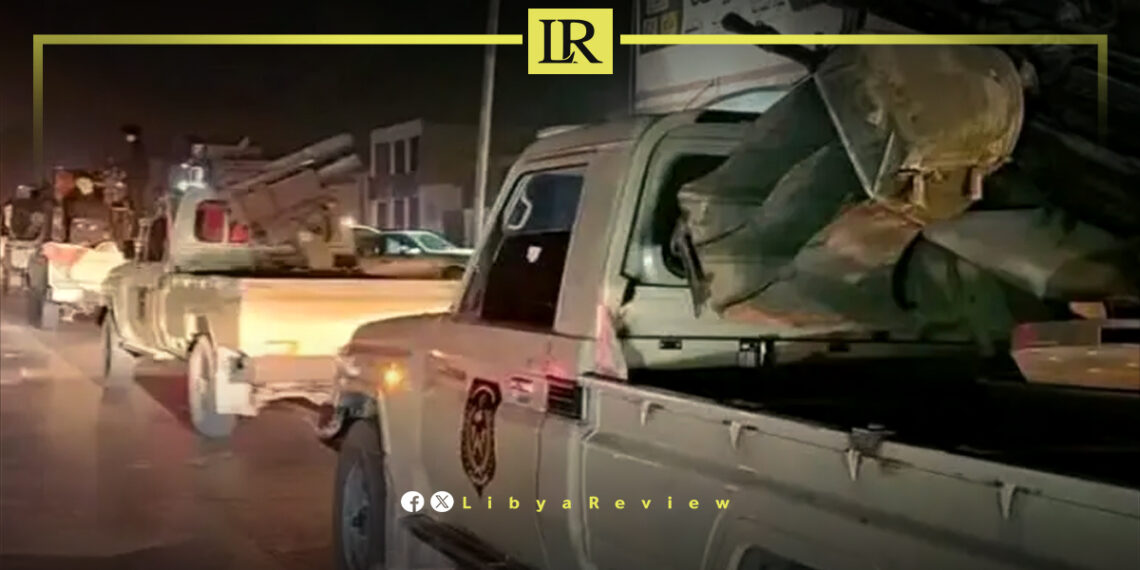Security sources confirmed on Thursday that heavily armed convoys from Misrata have begun moving toward Tripoli, a development that has fueled fears of renewed clashes in the capital. The movements come amid heightened tension between rival groups, with concerns that the fragile calm in the city could quickly unravel.
In response, Mohammed Al-Hassan, commander of the 166th Guard and Protection Battalion and head of the conflict resolution committee, announced that de-escalation forces had been deployed across Tripoli. He appealed for restraint, saying: “We remain committed to peace and stability. We are not advocates of war, and we hope wisdom prevails.”
Reports of the convoys followed earlier accounts of military build-ups near the outskirts of the capital. Some sources warned that armed factions may be preparing to target the Special Deterrence Force (Radaa) headquarters in Tripoli’s Mitiga district, an area that has seen violent confrontations in the past.
Amid growing alarm, outgoing Prime Minister of the Government of National Unity (GNU) Abdulhamid Dbiab convened an urgent security meeting at his residence in the Andalus neighborhood.
The talks included Acting Defense Minister Abdel-Salam Zoubi, Joint Operations Force commander Omar Bogdada, and Acting Interior Minister Emad Trabelsi. While no details were released, the meeting underscored the seriousness of the situation.
Local leaders have been quick to reject the possibility of renewed conflict. Hisham Bin Youssef, coordinator of the Social Council of Souq Al-Jumaa, said the mobilizations were “political messages” aimed at disrupting stability, reaffirming the council’s opposition to war and its support for the UN’s roadmap, which calls for a new unified government.
In Misrata, elders and activists echoed this sentiment, meeting to denounce any attempt to reignite fighting in Tripoli. They urged factions to prioritize dialogue and protect Libya’s fragile social fabric from further division.


